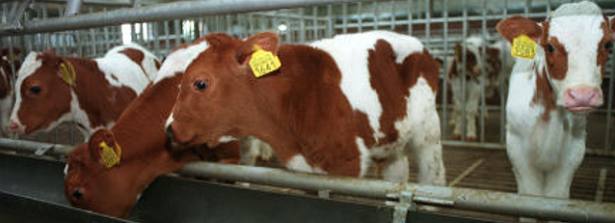Food for All Talk 05 “Overusing Antibiotics in the Livestock Sector: something can be done!”

On September 28, the fifth Food for All Talk (#FFATalks) under the WBG-Netherlands Partnership took place, entitled “Overusing Antibiotics in the Livestock Sector: something can be done!”. Chief Veterinary Officer of the Netherlands Christianne Bruschke gave an overview of the best practices from the Netherlands and Lorenzo Terzi from the European Commission explained the new “One Health” developments in Brussels (EC).
In this fifth edition of the Food for All Talk series, a World Bank Group (WBG) audience was informed on how the sector can organize and adapt itself for success. And on how this can be done without sacrificing livestock production or farmer income, also in low- and middle-income countries and benefiting from the perspective of the broader One Health approach.
Chief Veterinary Officer of the Netherlands Christianne Bruschke explained to a well filled room what the organizational model and critical success factors were of pushing back antibiotics in the livestock sector by 65% within five years. Key factors were a sense of urgency in society leading to strong political support and a set of well-defined politically mandated targets, a well-organized sector, transparency, empowering veterinaries, and making the sector actors (farmers, vets) themselves responsible to reach the targets. “We had hoped that resistance to antibiotics (AMR)1 that had developed over the years, would at least stabilize, but to our surprise resistance actually went down. Really successful”.
Lorenzo Terzi of the European Commission representation in Washington DC explained the One Health Action Plan of the EU and its new prioritization. Not just the Netherlands, but the EU as a best practice, boosting research and innovation on Antimicrobial Resistance (AMR) and shaping the global agenda on AMR.
Martien van Nieuwkoop, Director Agriculture at WBG, and Franck Berthe, Senior Livestock Specialist, stressed the importance to address AMR; as it brings the risk of 10 million additional human deaths in 2050, see the – World Bank report “Drug-Resistant Infections: A Threat to Our Economic Future”). Van Nieuwkoop and Berthe were pleased to make the connections and explained the WBG’s position to cross-cut attention for AMR in its investments: it is in water, in education, in public health, in livestock and agriculture sectors. In developing countries, which often have less financial and technical capacity, a self-standing AMR program is probably not the most effective approach. Investments in capacitated veterinary systems, transparency and data are likely priorities first.
Please find here the video link of this fifth Food for All Talk.
Please download the PowerPoint presentation (PDF) by Christianne Bruschke.
Please download the PowerPoint presentation (PDF) by Lorenzo Terzi.
Further reading on ongoing Food & Business Research in this domain: “Enhancing safety and quality of milk in Ethiopia” with Dutch consortium partners RIKILT and Dutch Farm Experience.
Footnotes
- 1. Antimicrobial resistance (AMR) is defined as the ability of a microorganism (like bacteria, viruses, and some parasites) to stop an antimicrobial (such as antibiotics, antivirals and antimalarials) from working against it. As a result, standard treatments become ineffective, infections persist and may spread to others. Source: WHO www.who.int/antimicrobial-resistance/en/





